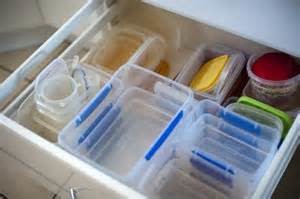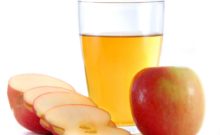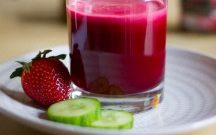 Plastic storage containers – who really gives them a second thought? Recent studies show that we should. Columbia University recently reported a profound link between prenatal exposure to a common household chemical and a lower IQ. We have been hearing for years that pesticides and the chemicals used on our food are not safe. Granted, the FDA can’t be expected to consider every sensitivity and allergy. But how come those within the organic community understand and call attention to the dangers of chemicals, yet the broader community still remains uninformed?
Plastic storage containers – who really gives them a second thought? Recent studies show that we should. Columbia University recently reported a profound link between prenatal exposure to a common household chemical and a lower IQ. We have been hearing for years that pesticides and the chemicals used on our food are not safe. Granted, the FDA can’t be expected to consider every sensitivity and allergy. But how come those within the organic community understand and call attention to the dangers of chemicals, yet the broader community still remains uninformed?
Approved “Safe” Household Plastics Prove Otherwise
Part of the problem is there are a lot of uncertainties with artificial chemicals, which are included in everything from household cleaners to air fresheners. For a long time human beings have been trying to find quick solutions to mother nature’s timely production. We want it and we want it now! The Verruca Salt* approach is costing the human race so much. The recently released study of a common household chemical offers proof. This study, which covered a span of about 7 years, used mothers who had high levels of phthalates exposure during pregnancy. The researchers tested the now 7-year-old children’s IQs against children of the same age with lower levels of exposure. The study made it very clear that prenatal phthalate exposure negatively affected the fetus and continues to have an impact 7 years later in the child’s life! The study revealed an IQ point difference of 6.6 and 7.6. So what are phthalates and how can we avoid them? Phthalates basically make plastics more difficult to break and help them to be flexible. One real enticement to using phthalates is that these chemicals can carry scents. So the next time you smell an eraser that smells like strawberries there is a very real possibilities that it’s the phthalates that are helping to keep that smell in the rubbery eraser.
Where is it Found?!
Unfortunately, phthalates are seemingly everywhere. All those plastic containers you store your food in have phthalates. When we heat up our food in plastic containers these chemicals can be released into our food and into the air. For now the researchers are advising pregnant women especially to avoid scented products like dryer sheets and air fresheners. They also advise to stay away from food heated in plastic containers and not to use recycled plastics labeled 3, 6, or 7. Columbia’s website also noted the following:
“…numerous studies show that they disrupt the actions of hormones, including testosterone and thyroid hormone. Inflammation and oxidative stress may also play a role.”
Obviously there is still many problems we are unaware of when using man-made chemicals and products. Whenever possible protect yourself by keeping your food as close to nature as possible and rethinking your use of plastics. Keeping your home chemical-free is a must to avoid exposure to these dangerous additives.
Applications & Resources on Household Plastics
- Go to Columbia’s website to read the study over for yourself.
- Check out news reports at CNN and NBC
- Read more at Treehugger and Livescience
iGOZEN is an all-natural, chemical-free alternative to your food wash and daily cleaning needs. We at iGOZEN believe that the best cleaner is one that nature provides. Chemical exposure has been the culprit for so many avoidable missteps. From newly formed allergies and lower IQ points to autoimmune issues – chemicals have plagued the western world. We want to encourage you to seek out clean safe alternatives. iGOZEN offers a simple solution in our food washes that remove pesticides and cross-contaminants and our Everyday Cleaner which safely and effectively removes the germs and dirt that can make your family sick.



